Introduction: In this article, Gena Philibert-Ortega discusses eight genealogy books that she has found helpful with her family history research. Gena is a genealogist and author of the book “From the Family Kitchen.”
What’s on your summer reading list? It doesn’t matter what literature genre you enjoy, make sure to carve out some time to read genealogy and history books. By reading more about genealogy you can learn research methodologies, discover new-to-you resources, and enhance your skills.
Need some genealogy book recommendations? Here are just a few of my favorites reads.
You Can Write Your Family History
One of the reasons I love newspaper research is because of the rich content you can add to the story of your ancestor’s life. But for many researchers, after the thrill of finding information there is the nagging question of what to do with all of it. Sharon DeBartolo Carmack’s book You Can Write Your Family History provides the tools for taking all of that research and turning it into a family history that everyone will want to read. My favorite part of this book is the chapters on researching and using social history to add interest to your family history story. Read those chapters to take your research from something only a genealogist would want to read to something each and every family member will treasure.
The Researcher’s Guide to American Genealogy, Third Edition
What is one of the must-have books for every researcher tracing their United States roots? The Researcher’s Guide to American Genealogy, Third Edition by Val D. Greenwood should be on every family historian’s bookshelf. Looking for a good overview of the fundamentals of research and sources for tracing your family? This is the book. Greenwood explains how to research using “compiled sources, vital and census records, wills and probate records, local and federal land records, civil and criminal court records, church records, military records, immigration records, and cemetery and burial records.” Every researcher should have a basic how-to genealogy book that covers sources and methodologies, and this is one of the best.
The Family Tree Guidebook to Europe
Is it time for you to jump across the pond with your genealogy research? Instead of just guessing about what to do next, refer to The Family Tree Guidebook to Europe. This book is not only a good place to find maps and resources, it also provides timelines of events that would have impacted your ancestor’s life. Because history and changing geographical boundaries affected your ancestor’s homeland, consult this work before making your research plans.
The Family Tree Sourcebook
A “companion” to Family Tree Guidebook to Europe is The Family Tree Sourcebook, a must for learning more about states you are researching.
Map Guide to the U.S. Federal Censuses 1790-1920
One of the first genealogy books I saved up to buy was the Map Guide to the U.S. Federal Censuses 1790-1920 by William Thorndale and William Dollarhide. I believe it was co-author William Dollarhide who once made the quip that you could have an ancestor live in five different counties but never move out of their home. This guide shows county outline maps for every 10 years from 1790-1920. Knowing and understanding county boundaries can benefit your census research as well as your finding other types of records (as well as save you valuable research time). To better understand your ancestor’s life, migration, and where to look for records, stock your personal library with maps and map guides. This book will be a great addition to that genealogy collection.
Guide to Naturalization Records in the United States
I’m a big fan of author Christina K. Schaefer’s books. Her Guide to Naturalization Records in the United States is a perfect addition to your library, especially as a resource after you’ve searched for your ancestor’s name on passenger lists in GenealogyBank. This book: “state by state, county by county, city by city, the Guide to Naturalization Records identifies all repositories of naturalization records, systematically indicating the types of records held, their dates of coverage, and the location of original and microfilm records. The Guide also pinpoints the whereabouts of federal court records in all National Archives facilities. But perhaps the most unique feature of the Guide to Naturalization Records is that it identifies every single piece of information on naturalizations that is available on microfilm through the National Archives or the Family History Library System…”
The Hidden Half of the Family: A Sourcebook for Women’s Genealogy
Other books by Christina K. Schaefer include The Hidden Half of the Family: A Sourcebook for Women’s Genealogy, another excellent guide that provides state-by-state resources (and early laws that affected women) for researching female ancestors.
Turn Your iPad into a Genealogy Powerhouse
Do you have an iPad? If so, I hope you’re using it for your genealogy. It wasn’t too long ago that doing research at a library or archives meant lugging around a rolling suitcase with a laptop, camera, and more. Today, I simply take my iPad and I have everything I need to research, take images of and store documents, refer to my family tree and look up my virtual library. Technology isn’t doing you any good if you don’t know how to use it. Consider checking out genealogy podcaster and international speaker Lisa Louise Cooke’s Turn Your iPad into a Genealogy Powerhouse. Along with tips and suggestions, there is a look at over 65 apps that can help you make the most of your iPad. While this book is geared towards the iPad, Cooke includes comparable apps for Android tablets.
I’ve only hit the tip of the iceberg in this article.There are so many more excellent genealogy books!

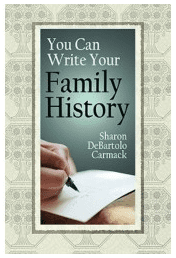
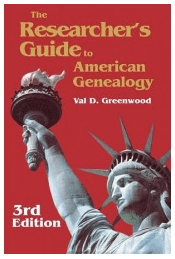
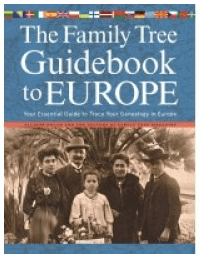
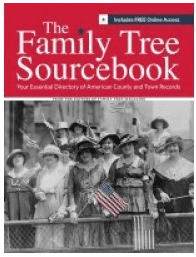


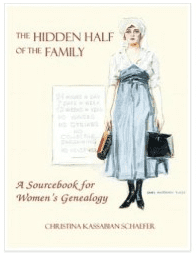
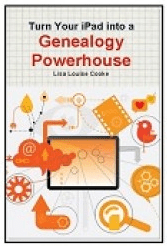
I’m looking to take on my late mother’s extensive genealogy research. I have quite a bit of data; however, I don’t know what to do next. She discovered so much detail with her Irish roots, now it is time for dad’s Mormon roots research out west.
Jennifer, you might want to do two things. One is to organize what you have inherited. Second, make sure you get the information into a family tree of some kind . Always start with yourself and then work backward in time.
There are various helps online that can be beneficial including the videos and wiki at FamilySearch.org.
Good luck!